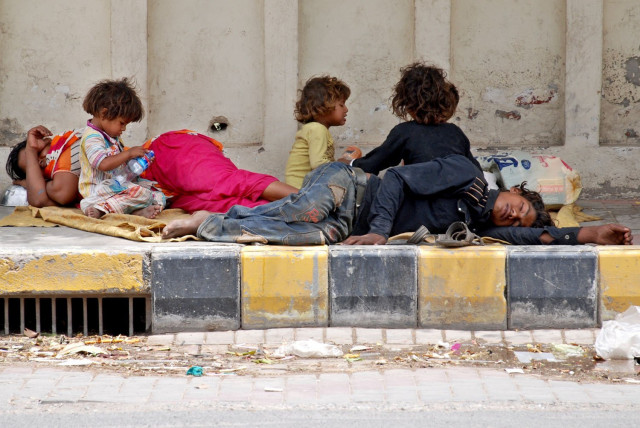Activist wants children sleeping on the roads ‘arrested’ for their own good
NGO representative goes to court to get children into the Remand Home.

Syed Iqbal Kazmi of the Human Rights Commission for South Asia (HRCSA) moved a petition, which was heard on Tuesday by a division bench of the Sindh High Court, comprising Justice Gulzar Ahmed and Justice Imam Bux Baloch.
Quoting figures from a survey conducted by the NGO, Kazmi maintained there are around 32,500 street children in Karachi alone. Out of these, 17,000 spend the night outside as well. Around 12 to 20 such children are added to this figure every day because young boys and girls from all over Pakistan come to Karachi, seeking work, refuge or freedom.
Street children are exposed to sexual harassment and many of them are forced into prostitution, said the petitioner, supporting his argument with statistics.
“There are 9,860 children working in the Fish Harbour and the industrial zones of Karachi while 11,530 are working in hotels and 1,685 in auto-repair workshops (car maintenance, etc),” the petitioner stated.
At least 7,840 cases are pending against juvenile offenders (children below 18 years of age), in which 12,000 offenders are under trial. Around 4,700 street children are selling flowers and cleaning windshields at traffic signals.
Seventeen children are living in the Remand Home (a sanctuary arranged by the government for homeless children) while 145 under-trial juvenile offenders are lodged in the juvenile prison.
The petitioner said that the respondent police officials are required to arrest street children under Section 109 of the Pakistan Penal Code. Any child found begging or out on the streets in the night should be taken to the remand home.
Kazmi said that under the Guardian and Ward Act, the state is “the guardian” of all children. The social welfare department (SWD) has an annual budget of Rs119 million and also has the National Commission for Child Welfare and Development but it has done nothing for the welfare of street children, he alleged.
As for the role of the home and prisons department, Kazmi said that under the Juvenile Justice Rules 2002, the government was required to construct Borstal Homes (correctional facilities for the youth) in every administrative district of the province but this was never implemented.
Kazmi asked the court to declare the “state as the guardian of children” to provide facilities, direct the law-enforcement agencies to arrest the children (and provide them refuge in the Remand Home) and also to summon performance records of the SWD.
The bench ordered notices to the Advocate General and all respondents including the chief secretary, home secretary, finance secretary, Karachi DCO, Inspector-General of Police, Capital City Police Officer, SSP Railways, Inspector-General Prisons, Judicial Lockup Superintendent and Social Welfare Department Secretary, directing them to present themselves in court on March 1 and file comments as well. The hearing was then adjourned till March 1.
Published in The Express Tribune, February 9th, 2011.



















COMMENTS
Comments are moderated and generally will be posted if they are on-topic and not abusive.
For more information, please see our Comments FAQ